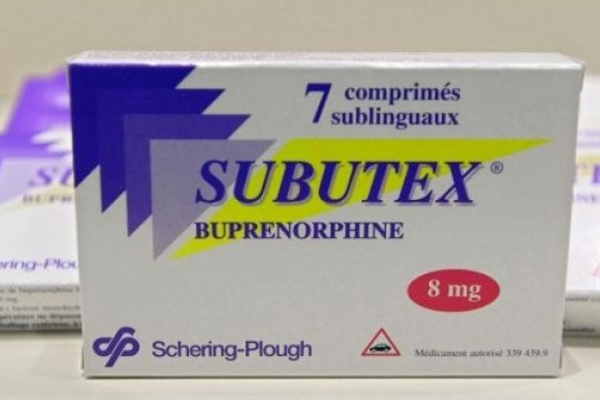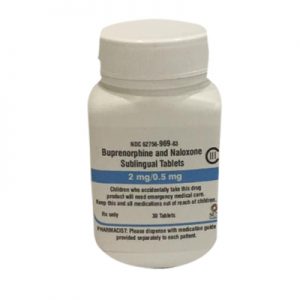Description
IS BUPRENORPHINE A PAIN KILLE? BUY SUBUTEX 8 MG BUPRENORPHINE SUBLINGUAL TABLETS ONLINE
WHAT IS BUPRENORPHINE SUBLINGUAL?
Subutex 8 mg Buprenorphine is an opioid medication. Buprenorphine oral/sublingual (given under the tongue) is used to treat opioid addiction.
Other forms of Subutex 8 mg Buprenorphineare used to treat moderate to severe pain. Buprenorphine sublingual is not for use as a pain medication.
Buprenorphine sublingual may also be used for purposes not listed in this medication guide.
IMPORTANT INFORMATION
Buprenorphine sublingual tablets are not for use as a pain medication.
MISUSE OF OPIOID MEDICINE CAN CAUSE ADDICTION, OVERDOSE, OR DEATH. Keep the medication in a place where others cannot get to it.
Taking opioid medicine during pregnancy may cause life-threatening withdrawal symptoms in the newborn.
Fatal side effects can occur if you use opioid medicine with alcohol, or with other drugs that cause drowsiness or slow your breathing.
BEFORE TAKING THIS MEDICINE
You should not use buprenorphine if you are allergic to it, or:
- if you have used another narcotic drug within the past 4 hours.
Tell your doctor if you have ever had:
- methadone treatment;
- any type of breathing problem or lung disease;
- abnormal curvature of the spine that affects breathing;
- liver disease (especially hepatitis B or C);
- kidney disease;
- enlarged prostate, urination problems;
- a head injury or brain tumor;
- alcoholism, hallucinations, mental illness; or
- problems with your stomach, gallbladder, adrenal gland, or thyroid.
If you use buprenorphine while you are pregnant, your baby could become dependent on the drug. This can cause life-threatening withdrawal symptoms in the baby after it is born. Babies born dependent on habit-forming medicine may need medical treatment for several weeks.
Subutex 8 mg Buprenorphine can pass into breast milk and may cause drowsiness, and breathing problems in a nursing baby. Ask your doctor about any risk.
Buprenorphine is not approved for use by anyone younger than 18 years old.
HOW SHOULD I TAKE SUBUTEX 8 MG BUPRENORPHINE SUBLINGUAL?
Follow the directions on your prescription label and read all medication guides. Your doctor may occasionally change your dose. Use the medicine exactly as directed. Never use Subutex 8 mg Buprenorphine in larger amounts, or for longer than prescribed.
Buprenorphine sublingual is usually taken for only at the start of treatment for addiction. Most people are later switched to another medicine that contains buprenorphine (Bunavail, Sublocade, Suboxone, Zubsolv).
You may receive your first doses of buprenorphine sublingual in a hospital or clinic setting until your condition improves.
Use dry hands when handling the tablet. Place the tablet under your tongue and allow it to dissolve with your mouth closed. Do not chew the tablet or swallow it whole.
If your doctor has prescribed more than 2 tablets per dose, place the correct number of tablets under your tongue at the same time and allow them to dissolve completely.
Do not eat or drink anything until the tablet or film has completely dissolved in your mouth.
You may need frequent blood tests to check your liver function.
If you need surgery, tell the surgeon ahead of time that you are using Subutex 8 mg Buprenorphine.
Never crush or break a buprenorphine pill to inhale the powder or mix it into a liquid to inject the drug into your vein. Doing so could result in death.
Any medical care provider who treats you should know that you are being treated for opioid addiction, and that you are taking buprenorphine sublingual. Make sure your family members know how to provide this information in case they need to speak for you during an emergency.
Do not stop using buprenorphine suddenly, or you could have unpleasant withdrawal symptoms. Ask your doctor how to safely stop using Subutex 8 mg Buprenorphine.
Store at room temperature away from moisture and heat. Keep track of your medicine. Buprenorphine is a drug of abuse and you should be aware if anyone is using your medicine improperly or without a prescription.
Do not keep leftover opioid medication. Just one dose can cause death in someone using this medicine accidentally or improperly. Ask your pharmacist where to locate a drug take-back disposal program. If there is no take-back program, flush the unused medicine down the toilet.
WHAT HAPPENS IF I MISS A DOSE?
Take the medicine as soon as you can, but skip the missed dose if it is almost time for your next dose. Do not take two doses at one time.
WHAT HAPPENS IF I OVERDOSE?
Seek emergency medical attention or call the Poison Help line at 1-800-222-1222. A buprenorphine overdose can be fatal, especially in a child or other person using the medicine without a prescription.
Overdose symptoms may include extreme drowsiness or weakness, cold or clammy skin, pinpoint pupils, slow heart rate, weak pulse, very slow breathing, or coma.
WHAT SHOULD I AVOID WHILE TAKING BUPRENORPHINE SUBLINGUAL?
Do not drink alcohol. Dangerous side effects or death could occur.
Avoid driving or operating machinery until you know how Subutex 8 mg Buprenorphine will affect you. Dizziness or drowsiness can cause falls, accidents, or severe injuries.
CHEAP SUBOXONE DOCTORS NEAR ME, WHERE TO BUY A SUBOXONE DRUG TEST
BUPRENORPHINE SUBLINGUAL SIDE EFFECTS
Get emergency medical help if you have signs of an allergic reaction: hives; difficult breathing; swelling of your face, lips, tongue, or throat.
Opioid medicine can slow or stop your breathing, and death may occur. A person caring for you should seek emergency medical attention if you have slow breathing with long pauses, blue colored lips, or if you are hard to wake up.
Call your doctor at once if you have:
- opioid withdrawal symptoms–shivering, goose bumps, increased sweating, feeling hot or cold, runny nose, watery eyes, diarrhea, muscle pain;
- noisy breathing, sighing, shallow breathing;
- slow heartbeat or weak pulse;
- a light-headed feeling, like you might pass out;
- chest pain, trouble breathing;
- low cortisol levels– nausea, vomiting, loss of appetite, dizziness, worsening tiredness or weakness; or
- liver problems–nausea, upper stomach pain, itching, loss of appetite, dark urine, clay-colored stools, jaundice (yellowing of the skin or eyes).
Seek medical attention right away if you have symptoms of serotonin syndrome, such as:agitation, hallucinations, fever, sweating, shivering, fast heart rate, muscle stiffness, twitching, loss of coordination, nausea, vomiting, or diarrhea.
Common side effects may be more likely to occur, such as:
- constipation, nausea, vomiting;
- headache;
- increased sweating;
- sleep problems (insomnia); or
- pain anywhere in your body.




